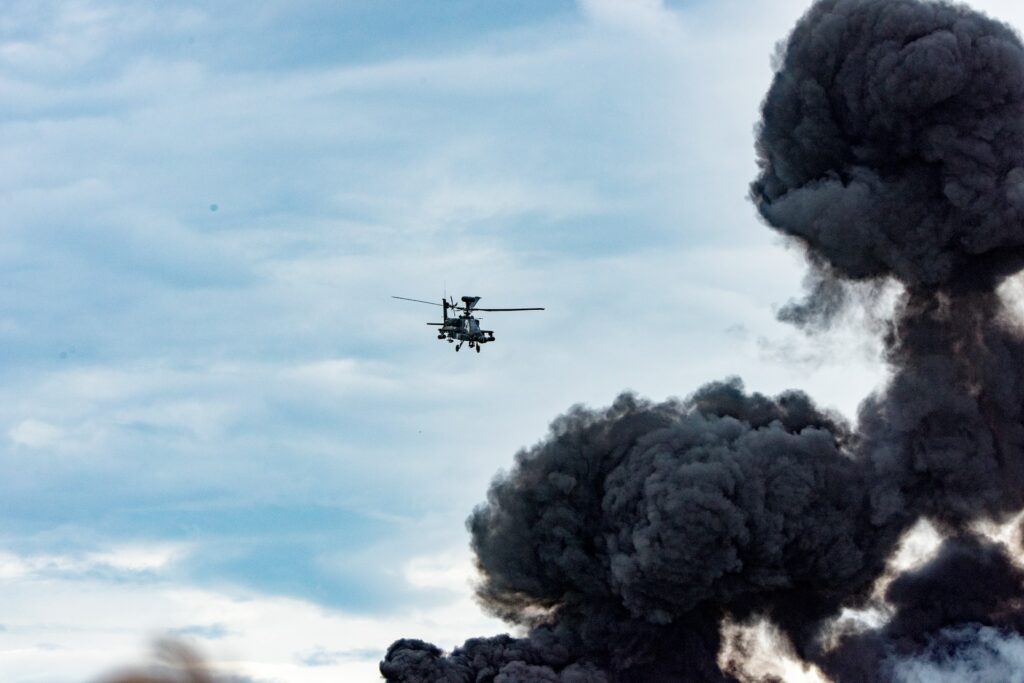
(Scypre.com) – In a dramatic escalation of tensions in the Middle East, Israeli airstrikes have targeted Houthi rebels in Yemen just a day after the Iran-backed group claimed responsibility for a deadly attack on Tel Aviv, Israel’s bustling coastal city.
The Israel Defense Forces (IDF) confirmed that its fighter jets launched precision strikes on what they termed as “military targets of the Houthi terrorist regime” near Yemen’s Hodeidah Port on Saturday. This retaliatory action was described by Israeli Prime Minister Benjamin Netanyahu as a direct response to the death of an Israeli citizen in a drone attack on Tel Aviv the previous day.
“This is the first time Israel has struck Yemen,” Israeli officials noted, underlining the significance of the cross-border military action.
Reports from the Houthi-run Al Masirah TV indicated that the Israeli airstrikes primarily targeted oil facilities at Hodeidah Port, resulting in injuries to approximately 80 people, many of whom sustained severe burns. Houthi spokesperson Mohammed Abdulsalam condemned the strikes, alleging that they also hit civilian infrastructure and a power station, accusing Israel of “brutal aggression” aimed at exacerbating the plight of the Yemeni people and pressuring Yemen to cease its support for Gaza.
Yehya Saree, a spokesperson for the Houthi armed forces, vowed retaliation, asserting that they would not hesitate to target Israel’s critical assets. “Tel Aviv remains vulnerable,” Saree cautioned, emphasizing a preparedness for a prolonged conflict until what he termed as “Israeli aggression” ceases and Gaza’s blockade is lifted.
Prime Minister Netanyahu defended the airstrikes, characterizing Hodeidah Port as a strategic hub used by Houthis to receive weapons from Iran and launch attacks on international shipping in the Red Sea. “This operation, despite the distance from our borders, underscores Israel’s resolve to confront threats decisively,” Netanyahu declared.
According to IDF spokesperson Daniel Hagari, the airstrikes were also prompted by ongoing provocations, including hundreds of projectiles launched by the Houthis toward Israel since the onset of conflict with Hamas in Gaza last October. While many of these attacks were intercepted, the Houthis’ recent use of advanced drones capable of evading interception systems has raised alarms.
The international response has been varied. The United States and the United Kingdom have previously targeted Houthi positions in Yemen in response to attacks on shipping, but Israel’s decision to act independently this time marks a shift in strategy, fueled by the direct impact on Israeli civilians.
Israel’s Minister of National Security, Itamar Ben Gvir, expressed support for the operation and called for a similar approach against Hezbollah in Lebanon. Israeli officials, including Finance Minister Bezalel Smotrich and Defense Minister Yoav Gallant, echoed these sentiments, stressing that attacks on Israeli citizens would be met with force, regardless of location.
The strike on Hodeidah comes amid heightened regional tensions, with Lebanon’s Hezbollah and other Iranian-backed groups increasing cross-border hostilities with Israel in recent weeks. Israeli officials have warned of potential broader conflicts in the region, highlighting the volatile geopolitical landscape.
Meanwhile, Iran, which supports the Houthis, condemned Israel’s actions, warning of the potential for wider conflict. Iranian Foreign Ministry spokesperson Nasser Kanaani criticized Israel’s policies in Gaza and expressed solidarity with Yemen, framing the conflict as part of a broader struggle against Israeli aggression.